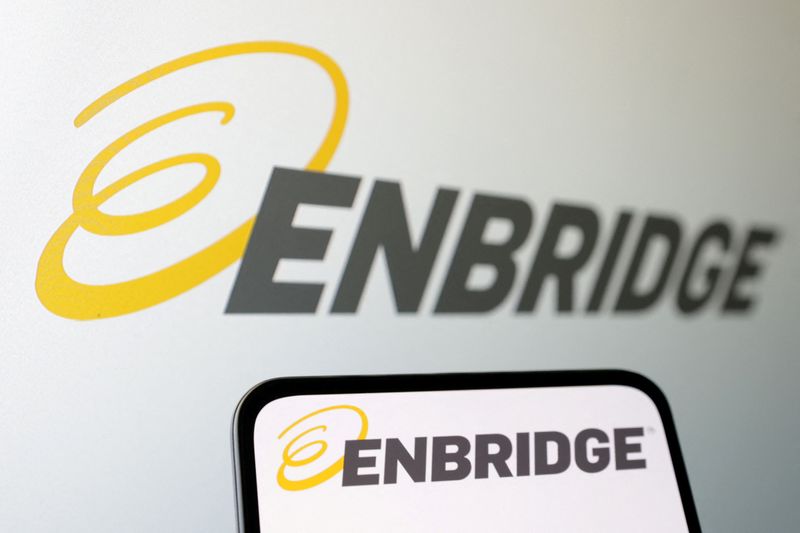By Clark Mindock and Rod Nickel
(Reuters) -The Biden administration has urged a U.S. appeals court to tell a lower court to rethink its order that would require Canadian operator Enbridge (NYSE:) to drain portions of an oil pipeline that runs through Native American tribal land in Wisconsin, according to a court filing made public on Wednesday.
In an amicus, or friend-of-court, brief dated April 8, the U.S. Department of Justice (DOJ) told the Chicago-based 7th U.S. Circuit Court of Appeals that forcing Enbridge to drain portions of its Line 5 pipeline could interrupt service in violation of a 1977 treaty between the U.S. and Canada to keep oil flowing.
The U.S., which is not a party to the case, said the lower court was right to find Enbridge is trespassing on the tribal land, but said the court should reconsider its decision ordering Enbridge to stop operating portions of the pipeline by 2026.
Canada, which is also not a party to the case, had previously argued in an amicus brief that the pipeline should be kept open due to the treaty.
The 2019 lawsuit was filed against Enbridge by the Native American tribe the Bad River Band of Lake Superior Chippewa.
Bad River Chairman Robert Blanchard in a statement said the tribe is grateful the U.S. agrees Enbridge is operating on tribal land unlawfully, but is “disappointed that the U.S. has not unequivocally called for an immediate end to Enbridge’s ongoing trespass.”
An Enbridge spokesperson said shutting the pipeline would not be in the public interest, and that the company continues to seek a solution that would not disrupt the flow of oil. The company has offered the Band $80 million to settle the dispute.
The 71-year-old pipeline carries 540,000 barrels of mostly Canadian oil per day from Wisconsin to Ontario and is part of the wider Mainline network.
The brief marks the first time DOJ has weighed in on the dispute since U.S. District Judge William Conley in Madison last year ordered Enbridge to shutter portions of the pipeline that run along a 12-mile (19 kilometer) segment of the Band’s reservation in Wisconsin.
He also ordered Enbridge to pay the tribe nearly $5.2 million for trespassing, plus a portion of its profits.

Both sides appealed the decision to the 7th Circuit, which had asked DOJ to weigh in on the issue in December. Judges said they couldn’t make a decision without hearing from the U.S. government during oral arguments in February.
In its amicus brief, DOJ also said $5.2 million in restitution is too low, given Enbridge’s profits from the pipeline. Enbridge has said it is still legally operating on the land, and is evaluating possible alternative routes for the pipeline.

